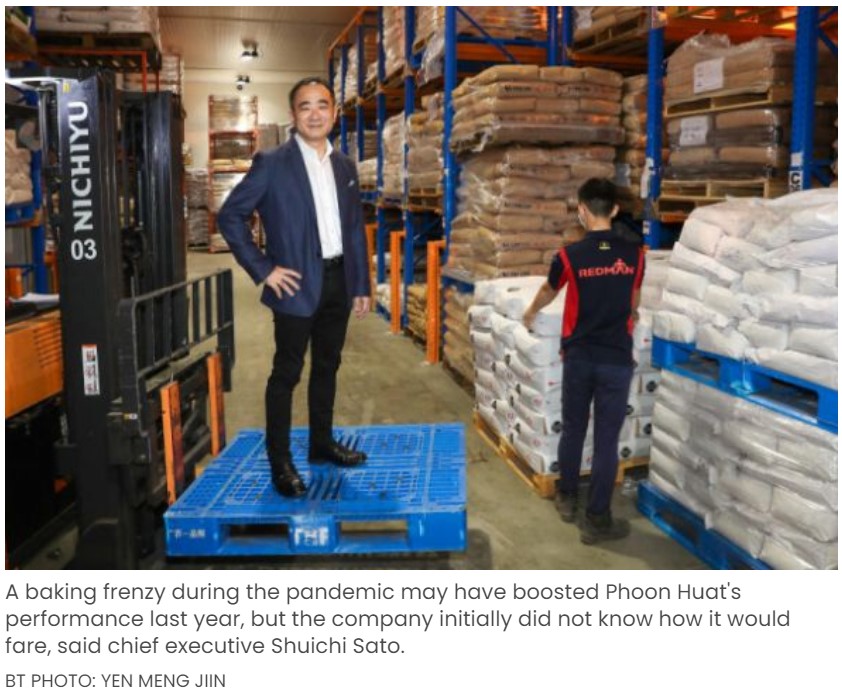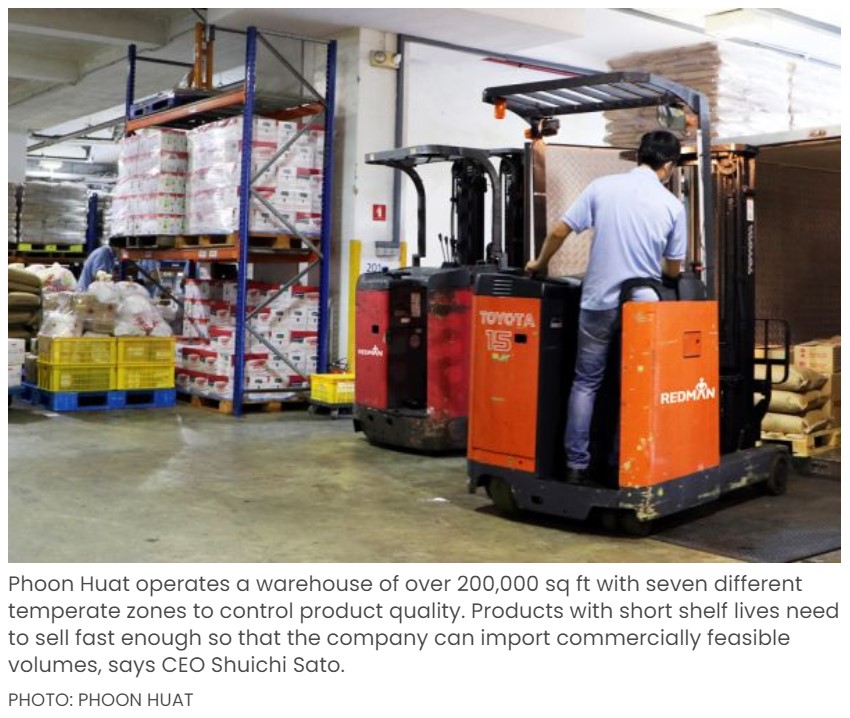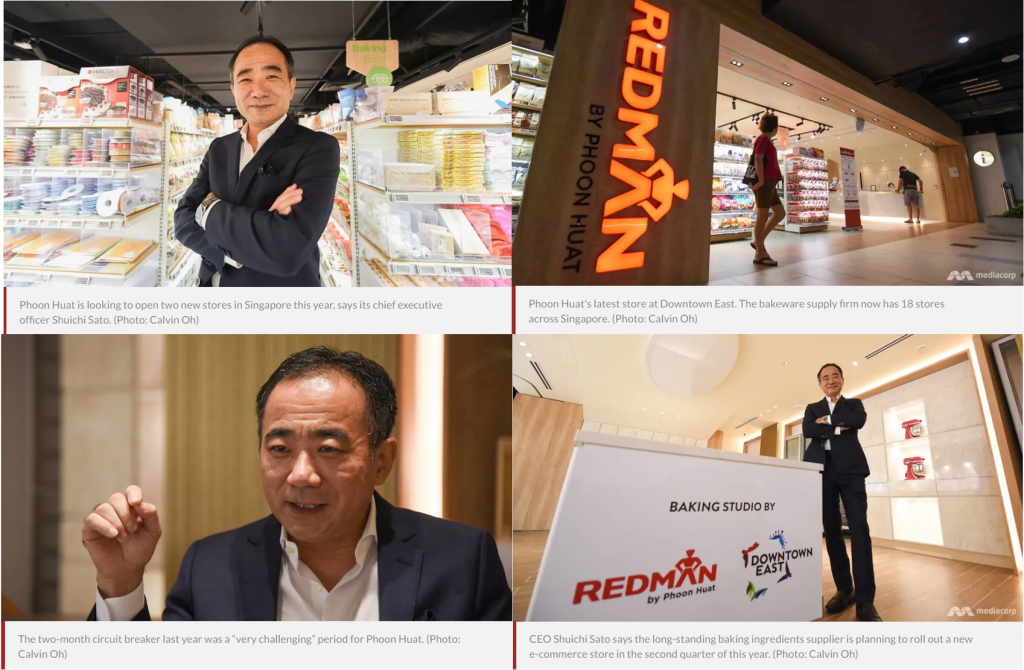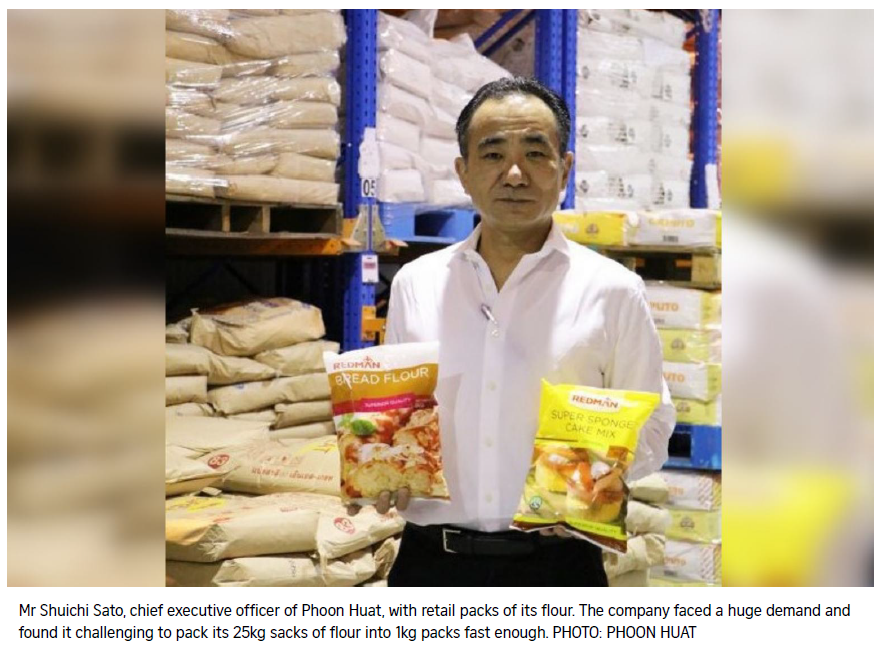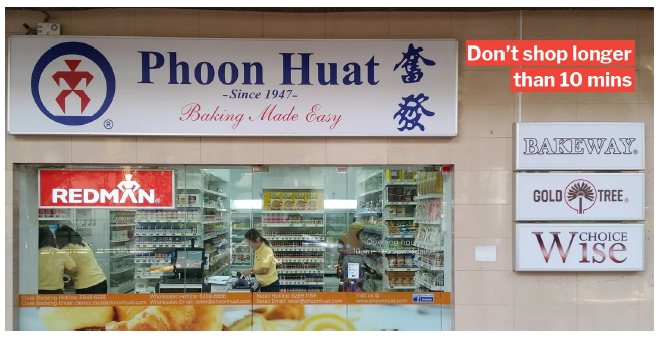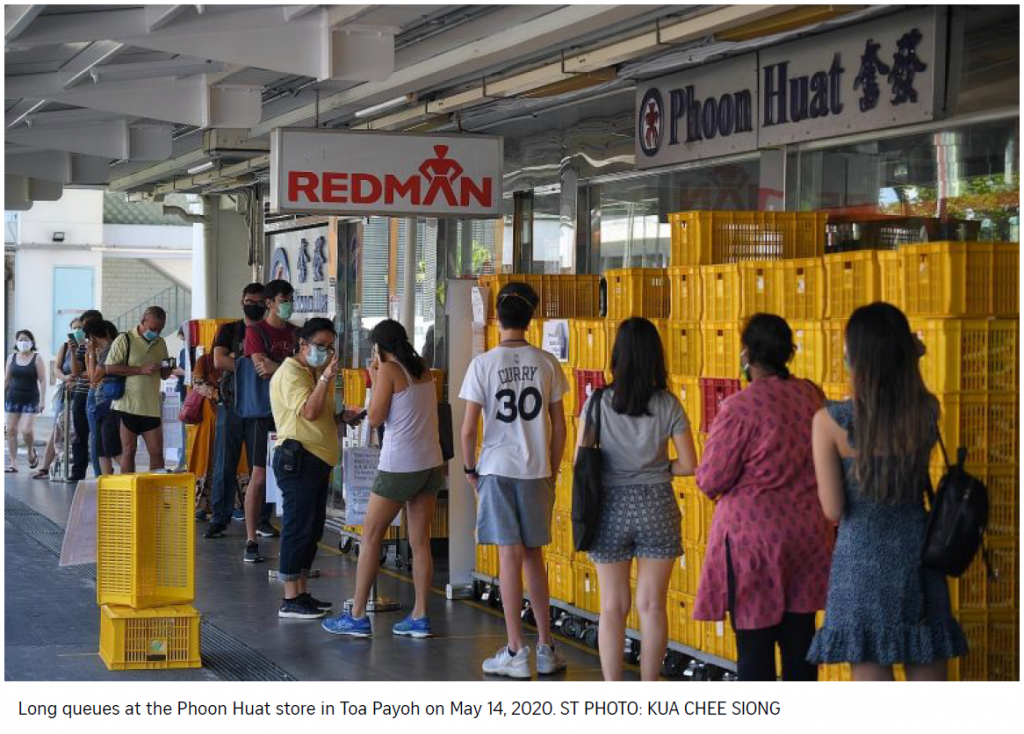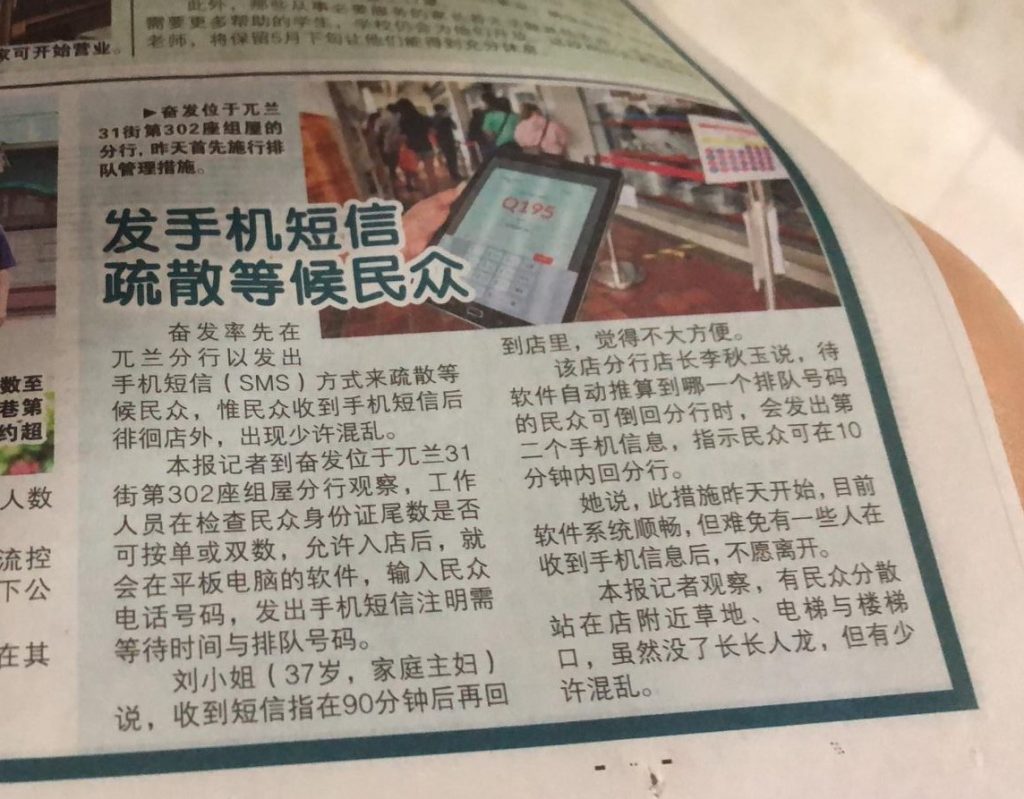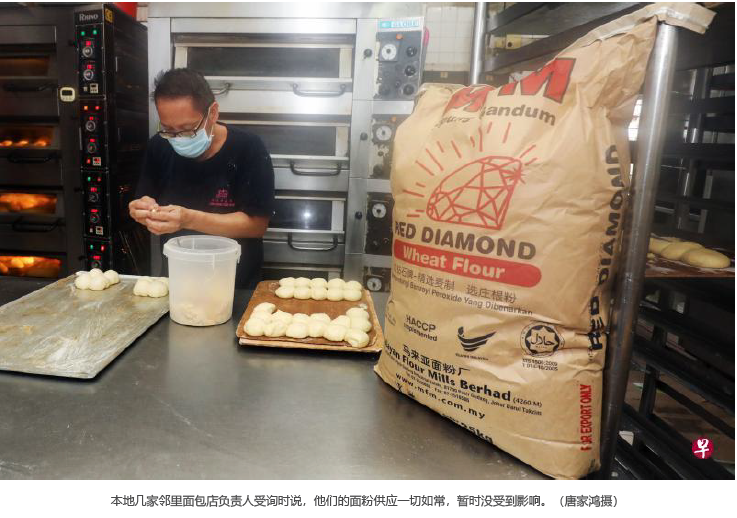BRANDED CONTENT | Published 22 Nov 2021 | The Straits Times

Making changes in “bite-sized pieces” – the company’s CFO shares recipe to the food product supplier’s digital transformation
Phoon Huat is no stranger to Singaporeans, particularly during the baking frenzy that gripped the island last year during the circuit breaker. Behind its 20-and-counting brick-and-mortar outlets, however, is a team that’s committed to digital transformation – one initiative at a time.
“Our objective is to integrate digital tools into all areas of business operations, while concurrently improving digital literacy across the company,” says Phoon Huat’s chief financial officer (CFO) Mr Lee Tjen Chew, 45, of the company’s digital transformation strategy.
Mr Lee, who is currently double-hatting as the company’s chief information officer, shares: “I don’t think we had doubts about going digital. But we had doubts about whether we were capable enough, and how we would go about doing that. If you asked me whether we had the necessary skill sets back then, I would have said ‘no’. This was something we actively worked to build.”
And build they did – together with a task force of employees who saw to the implementation of various digital initiatives, including a handheld mobile scanning system developed to replace the pen-and-paper processes previously used in the warehouse.
Project manager Nicholas Yeo, 32, recounts how he took pains to speak with warehouse employees about adopting the scanning system. He recalls: “They kept arguing, saying ‘I have been doing it with a pen and paper and it is fast and accurate’. So I told them, ‘Why don’t we have a competition? You do it your way, and I do it mine, and we see who can complete the task quicker.’”
Needless to say, Mr Yeo won – not only the challenge, but also the hearts and minds of the workers that day. “People don’t want to listen to your theories; they just want to see results,” he says. “We try to be accepting of every worker, to hear them out. And when it comes to new systems, we will give them time to learn.”

As for results, any lingering doubts about how far Phoon Huat has come in terms of digital transformation were squashed during the circuit breaker last year. Key digital capabilities that were deployed over the years, including support for VPN connectivity, IP telephony, and laptops for employees, enabled the company to quickly pivot backend operations to work from home without trouble.
Stepping boldly into the future
While the firm had first dabbled in the online world in 2018, it only launched a full-fledged e-commerce store under the RedManShop.com brand in 2020. Since then, its digital transformation efforts have picked up in scale and complexity, ranging from modernising its warehouse to developing mobile apps to empower its sales force, and the automation of routine administrative tasks across the organisation. Mr Lee maintains that digital transformation is an attainable goal for all SMEs, provided they keep an open mind and are willing to take the first step.
One key step Phoon Huat took in its quest to transform was to participate in the Singapore Business Federation’s Industry 4.0 Human Capital Initiative (IHCI) programme, which aims to equip companies with people management and job redesign skills required for successful Industry 4.0 transformation.

The programme provided Phoon Huat with a low-risk environment and expert advice from McKinsey & Company, and afforded the company the opportunity to review business processes and production issues, so it could map out its processes and introduce new best practices.
The IHCI programme helped identify problems such as machine maintenance and availability, which were cutting into valuable production time. After minor changes were implemented, the company’s overall production rose by 12 per cent.
Programmes such as IHCI are part of JTC’s Industry Connect initiative, launched last year to help businesses across its estates grow through technology adoption, while enhancing talent development and environmental sustainability. With over 14,000 customers, JTC can effectively promote business transformation to these companies by connecting them to solutions providers, trade associations, and government agencies.
Never stop learning and improving
External expertise aside, Mr Lee’s belief in lifelong learning means he actively encourages employees to explore new business ideas or acquire new skills for themselves. Mr Lee, who constantly seeks self-improvement through books and Youtube tutorials, encourages staff to attend industry events or webinars – even during office hours – and gives them the leeway to implement new ideas.
Business analyst Lee Yi Sam, 31, attended an event in 2019, organised by the Singapore Computer Society, where speakers shared how they tracked global sentiments through online news channels and social media.
He shares: “If there’s an upcoming new trend that is going viral on TikTok or another social media platform, it would be useful if we spot it early. Because once people want a particular item and demand surges, it means the stocks in individual stores will run out quickly. Knowing early can greatly benefit our inventory management and material resource planning.”
Senior software engineer Ilmi Wahab, 31, also benefited from the company’s culture of continual learning. He worked on Phoon Huat’s e-commerce website to build new applications for the SAP backend, despite not having experience with such systems before joining the firm. He also built an e-commerce packing module that substantially improved day-to-day operations.
Digital transformation is not a singular project you can complete but is a process of continuous refinement. There will always be things that you need to improve.
MR LEE TJEN CHEW, Chief financial officer, Phoon Huat
Mr Ilmi credits his successes to the “very patient and trusting” environment at Phoon Huat. He says: “Phoon Huat has given me a chance to take on a bigger role, encouraging and allowing me to test new applications in a sandbox environment before deploying them on the production server.”
Kickstarting a cycle of improvement
With all that said, digital transformation does not happen overnight. For SMEs mulling over jumping straight into the deep end, CFO Mr Lee cautions that digital transformation and digital literacy efforts should be done in small steps. Changing everything at one go can be highly disruptive, and he advises businesses to make changes in “bite-sized pieces”.
“We would often start with one feature and roll it out. Our users or the management would come back with additional feature requests, which we will then implement. Because it’s developed iteratively, a bit at a time, it is not overwhelming and far more digestible.”
And while it might appear to start out slow, Phoon Huat’s experience shows that the pace of improvement does gather momentum over time. And while resistance is expected from certain quarters, there are also employees who step forward with ideas and suggestions.
Mr Ilmi shares: “When I first joined, requests for new features were few and far between, as they were outsourced and that took a long time. With the ability to make changes in-house, employees are now more vocal about the things they want to change. I am happy when they come forward with ideas. They are now empowered to suggest changes and improve their workflows.”

On the digital transformation journey at Phoon Huat, CFO Mr Lee says: “Digital transformation is not a singular project you can complete but is a process of continuous refinement. There will always be things that you need to improve. The pace of digital transformation is picking up, and the pace is much, much faster today than it used to be.
“I think you will always have feedback for improvements if you are willing to listen. Moreover, the business will continue to evolve and grow, potentially into new areas. The technology will continue to advance, too, which means that some processes might need to change, and new technology adopted.”
Link to Article: https://www.straitstimes.com/business/companies-markets/digital-food-supplier-made-in-singapore-phoon-huat-jtc-industry-connect





